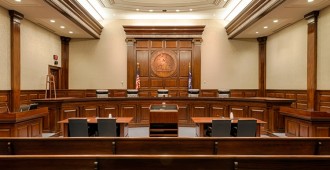
February 24, 2016
Patent Owner’s IPR Statements May Constitute A “Disclaimer” of Claim Scope In Litigation
It is well-established that a patent owner’s statements about a claim term made during prosecution can be viewed as a disclaimer of claim scope during the Markman phase of litigation. Similarly, clear and unambiguous statements made in the patent specification can restrict claim scope during litigation. Several district courts have now followed suit with regard to statements made by a patent owner in an IPR proceeding, including the District Court for the Northern District of California in the recent case Aylus Networks, Inc. v. Apple, Inc., Civil Action No. 13-cv-04700.
In Aylus, the patent-in-suit was directed to a media streaming architecture that permitted a user to coordinate the transfer of media content from an internet-based server to a physically-proximate media renderer. Aylus asserted the patent against Apple’s AirPlay feature of its iOS devices. Independent claim 1 recited a method of controlling and delivering media content by invoking “Control Point” logic and “Control Point Proxy” logic to cooperatively negotiate media content delivery under certain conditions. Claim 2, which depended from claim 1, recited that the “Control Point Proxy” logic is invoked to negotiate media content delivery under other conditions.
During the litigation, Apple filed a Petition for Inter Partes Review of the patent-in-suit. In its Preliminary Response, Aylus argued that claim 2 requires that “only” the Control Point Proxy logic is invoked under the conditions described in claim 2. Aylus was successful in avoiding institution of trial on claim 2.
In the litigation, the District Court later construed claim 2 to require that “only” the Control Point Proxy logic be invoked, which ultimately led the court to find non-infringement in favor of Apple on summary judgment. The district court’s claim construction was based upon traditional claim construction factors, including assessing the plain language of the claim and the teachings of the patent specification. The district court also relied upon Aylus’ arguments in its Preliminary Response in the IPR. The district court noted that IPRs are technically adjudicative proceedings, rather than prosecution, but nonetheless considered Aylus’ Preliminary Response statements to constitute a “prosecution disclaimer.”
Though there has been no Federal Circuit opinion on this topic yet, several district courts have viewed statements made during an IPR as disclaimers, akin to similar statements made in the specification and during actual prosecution, when it comes to claim construction during litigation.


































